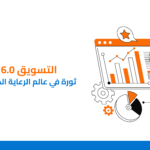Authenticity, Impact, and Connection
Marketing 6.0, with its focus on human-centricity and purpose-driven strategies, is a powerful catalyst for the growth of sustainable businesses. It goes beyond traditional marketing by recognizing the increasing consumer demand for ethical, environmentally conscious brands.
How Marketing 6.0 Fuels Sustainability:
- Purpose-Driven Branding: Marketing 6.0 encourages businesses to define their purpose and values, aligning them with sustainability goals. This creates authentic brands that resonate with environmentally conscious consumers.
- Data-Driven Insights for Eco-Efficiency: By leveraging data analytics, businesses can identify areas where they can reduce their environmental footprint. This might involve optimizing supply chains, reducing waste, or improving energy efficiency.
- Personalization for Sustainable Choices: Marketing 6.0 allows for personalized messaging that educates consumers about the benefits of sustainable products and encourages them to make eco-friendly choices.
- Building Communities of Shared Values: Social media and online platforms can be used to create communities around sustainability, fostering dialogue, sharing best practices, and encouraging collective action.
Marketing Sustainable Products and Services:
- Highlighting Authenticity: Consumers are increasingly skeptical of greenwashing. Marketing 6.0 emphasizes transparency and authenticity, ensuring that sustainability claims are backed by credible evidence.
- Storytelling and Emotional Connection: Effective marketing tells a compelling story about the positive impact of sustainable products and services, connecting with consumers on an emotional level.
- Influencer Marketing for Advocacy: Collaborating with influencers who are passionate about sustainability can amplify the brand’s message and reach a wider audience.
Transparency and Authenticity:
- Building Trust: Transparency is crucial for building trust with consumers. Businesses need to be open about their sustainability practices, including their challenges and progress.
- Traceability and Ethical Sourcing: Consumers want to know where their products come from and how they are made. Marketing 6.0 can highlight ethical sourcing and supply chain transparency.
- Impact Reporting: Sharing impact reports and data on the company’s environmental and social performance demonstrates accountability and builds credibility.
Examples of Sustainable Marketing in Action:
- Patagonia: Known for its commitment to environmental activism and transparent supply chains.
- Unilever: Implementing sustainable practices across its brands and promoting its Sustainable Living Plan.
- IKEA: Investing in renewable energy and promoting sustainable living through its product design and marketing.
Prioritizing Marketing 6.0 principles, businesses can not only reduce their environmental impact but also connect with consumers who are increasingly seeking out brands that share their values. This creates a powerful cycle of positive change, driving both business growth and a more sustainable future.






